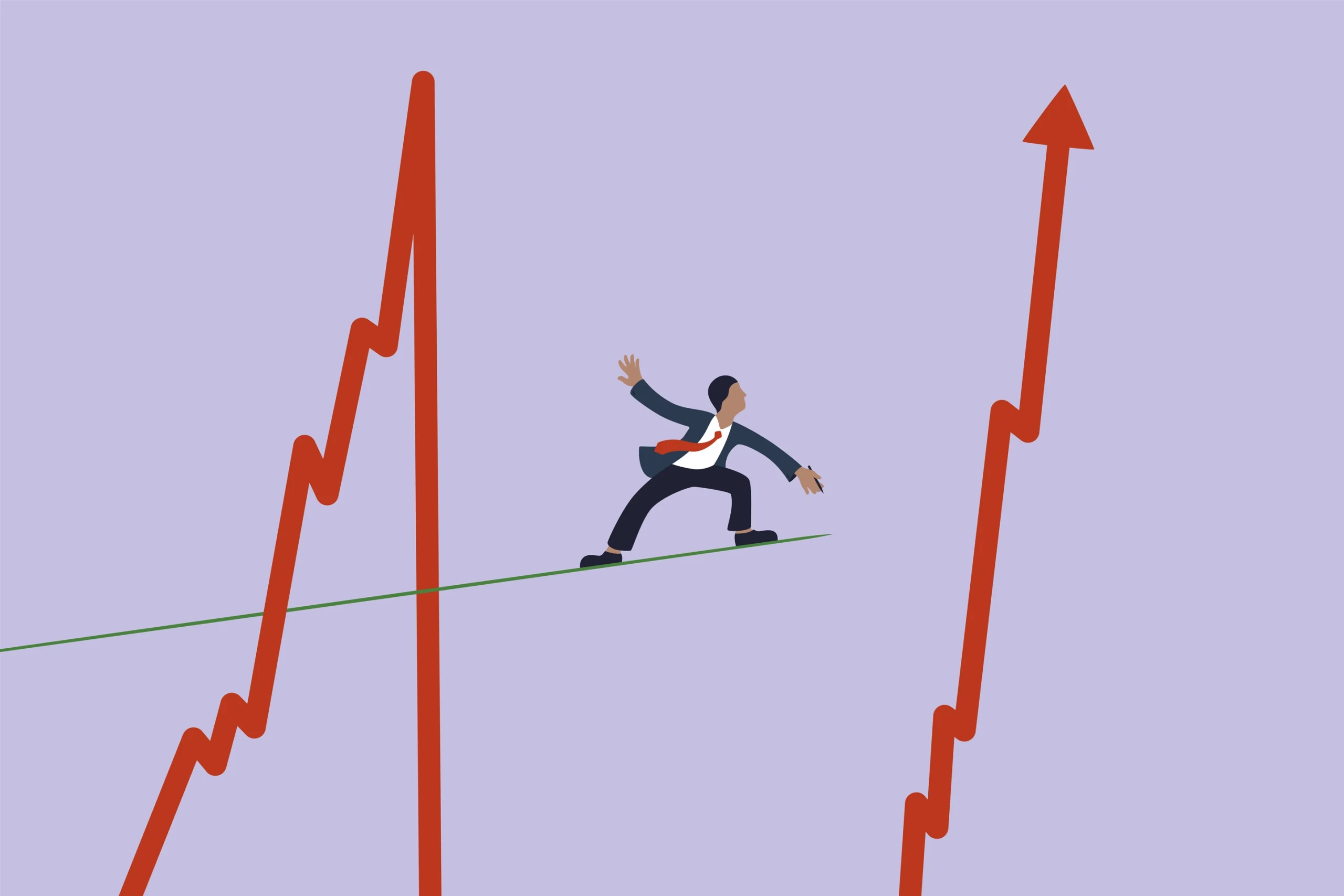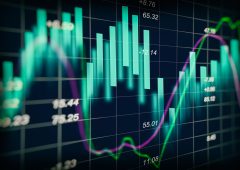Global Investor Sentiment Shifts Amid Economic Outlook and Geopolitical Risks
17.07.2024 15:00 2 min. read Alexander Stefanov
Investor optimism is currently buoyed by expectations of potential U.S. interest rate cuts, aiming to prevent a severe economic downturn, despite escalating geopolitical risks, according to the latest survey by Bank of America.
Conducted from July 5-11 among 242 fund managers overseeing $632 billion in assets, the survey indicated a notable downturn in global growth expectations, dropping sharply from -6% to -27% since March 2022.
This shift reflects mounting concerns about a weaker U.S. economy and a consensus that current monetary policies are the tightest since the 2008 financial crisis.
The survey highlighted that 68% of respondents foresee a “soft landing” scenario for the global economy, expecting a gradual easing of both growth and inflation.
However, there is a growing sentiment that the risks of a more severe economic slowdown, described as a “hard landing,” are underestimated due to recent declines in U.S. consumer spending, labor market conditions, and government expenditures. Consequently, the survey suggests a bullish outlook towards bonds and gold for the latter half of 2024.
Geopolitical tensions, particularly in the United States and globally, have emerged as significant factors driving market sentiment. Recent events such as France’s indecisive election outcome, challenges to U.S. President Joe Biden’s candidacy following a televised debate incident, ongoing conflicts such as Russia’s actions in Ukraine and Israel’s operations in Gaza, and heightened tensions between China and Taiwan, have heightened market uncertainty.
The survey indicated a shift in primary concerns from higher inflation to geopolitical conflicts as the largest tail risk for the investment outlook, marking a notable change after six months.
Moreover, the survey highlighted investor preferences with overweight positions in stocks and underweight positions in bonds, alongside reduced exposure to European Union equities. Managers also indicated a significant underweight position in real estate investment trusts (REITs), while showing a newfound overweight stance in utilities, typically viewed as underperformers during periods of high interest rates.
Additionally, the survey pointed out that the “Magnificent Seven” group of top U.S. stocks, including Apple, Microsoft, and Nvidia, remains the most crowded trade, underscoring investor preference for large-cap tech stocks.
-
1
Robert Kiyosaki Predicts When The Price of Silver Will Explode
28.06.2025 16:30 2 min. read -
2
Trump Targets Powell as Fed Holds Rates: Who Could Replace Him?
27.06.2025 9:00 2 min. read -
3
U.S. PCE Inflation Rises for First Time Since February, Fed Rate Cut Likely Delayed
27.06.2025 18:00 1 min. read -
4
US Inflation Heats Up in June, Fueling Uncertainty Around Fed Cuts
15.07.2025 16:15 2 min. read -
5
Key U.S. Economic Events to Watch Next Week
06.07.2025 19:00 2 min. read
US Inflation Heats Up in June, Fueling Uncertainty Around Fed Cuts
U.S. inflation accelerated in June, dealing a potential setback to expectations of imminent Federal Reserve rate cuts.
Gold Beats U.S. Stock Market Over 25 Years, Even With Dividends Included
In a surprising long-term performance shift, gold has officially outpaced the U.S. stock market over the past 25 years—dividends included.
U.S. Announces Sweeping New Tariffs on 30+ Countries
The United States has rolled out a broad set of new import tariffs this week, targeting over 30 countries and economic blocs in a sharp escalation of its trade protection measures, according to list from WatcherGuru.
Key U.S. Economic Events to Watch Next Week
After a week of record-setting gains in U.S. markets, investors are shifting focus to a quieter yet crucial stretch of macroeconomic developments.
-
1
Robert Kiyosaki Predicts When The Price of Silver Will Explode
28.06.2025 16:30 2 min. read -
2
Trump Targets Powell as Fed Holds Rates: Who Could Replace Him?
27.06.2025 9:00 2 min. read -
3
U.S. PCE Inflation Rises for First Time Since February, Fed Rate Cut Likely Delayed
27.06.2025 18:00 1 min. read -
4
US Inflation Heats Up in June, Fueling Uncertainty Around Fed Cuts
15.07.2025 16:15 2 min. read -
5
Key U.S. Economic Events to Watch Next Week
06.07.2025 19:00 2 min. read


